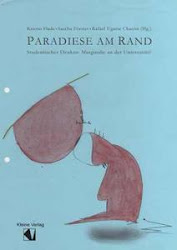I read something in Haaretz today. Which I like (like many articles they publish, seriously), not only like, deeply appreciate in many ways. Avraham Burg's latest book sure has interesting approaches, as does his article:
Marrying the Dalai Lama
Reaching out and accepting family members who are not of Jewish origin will greatly expand the boundaries of contemporary Jewish existence.
By Avraham Burg
The letters of the rabbis and the rabbis’ wives are arousing all the dormant Israeli demons. Although sometimes it seems as though the demons are already wearing down, they still have the power to frighten us and cause damage.
The first reaction is automatic and loud: Gevalt! Racists! The second reaction is also predictable: “What is hateful to you do not do to your neighbor,” or how, in light of our own history, we are doing exactly the same things to others.
The next reaction is far more thoughtful and profound: Am I really prepared to marry someone who is not a member of the Jewish people?
I encountered the first part of the question several years ago. A smart, secular and enlightened friend told me: “Avrum, I agree with all your humanistic opinions, but I must admit that if my son brings home a non-Jewish woman, it will cause me heartache.”
“And if he brings home a Jewish man?” I asked.
After a long hesitation he replied frankly: “I prefer a gay Jewish man to a non-Jewish woman.” For him, as for many others, the key is the “Jew” within him rather than the loving person within his son.
I recently encountered the first part of the answer in a courageous and penetrating article published by Edgar Bronfman, former president of the World Jewish Congress, which included a call to reopen the tent of our father Abraham in all four directions. To contain among ourselves, to stretch out our hands and to adopt the family members who are not of Jewish origin, and they are many. Not to tear apart and exclude, but to greatly expand the boundaries of contemporary Jewish existence.
Fortunately I am already very happily married, but this question awaits me with my children. They travel all over the world, study and with open minds meet Christians and Muslims. Some of their best friends are Orthodox Jews. And like that same friend, I have reached the age at which I have to answer myself frankly, what will my viewpoint be if one of their partners isn’t Jewish?
My answer is very simple. For me the test is not their Judaism. The first and almost the only perspective by which I examine my children’s friends is whether or not they are good people. The Jewish consideration is not the first one.
These are my considerations only. I have no authority over my children’s lives. I speak to them, and that’s all, and in the conversation I always want their happiness. One of the foundations of family happiness is a life of partnership, and the secret of genuine partnership is a common value system.
So this is the time to ask what Judaism is. When people say Jew, what do they mean? In the eyes of those letter-writing rabbis and rabbis’ wives and all their simplistic and fanatic believers, Judaism is first and foremost a genetic description, a connection of blood and race of “anyone born to a Jewish mother.”
And therefore those very same people pile up so many difficulties, and try to deter the converts who want to join our community. In the eyes of Judaism it is a connection to content and commitments; a glorious civilization (which is presently fighting for its life and its future), which is mainly a values-based, humanistic system, embracing all of humanity.
That is why a person’s origin is far less important to me than his core principles and his lifestyle. I divide all my worlds into the good and the bad. I totally reject the tacit assumption that all the Jews are on our side and all the gentiles are against us. There are wicked and terrible Jews, and there are good and righteous gentiles. And between them I prefer the latter, because of their goodness, and I despise the former, in spite of their Jewishness.
An eternal Israel will continue to exist and advance only if openness defeats seclusion, only if the Jewish people overcome the ignorant among them.
In order to understand the significance of the argument for everyday life you sometimes have to take the theory to absurd lengths.
Let’s say that one of my daughters were to introduce me to two possible sons-in-law: the Dalai Lama, whom she loves with all her heart and soul, or Rabbi Meir Kahane, whom she is willing to marry only because of his Jewish genetic origin.
And let’s also suppose that she were to say: Dad, choose for me. My choice would be clear and unequivocal: The Dalai Lama would become my son-in-law, beloved as a son and admired as a true partner in a way of life and principles of existence. Over the years and with patience I would work hard together with him to build bridges of understanding between the truth of his life and the foundations of our family. Together we would create a far broader family spirit than a narrow-minded Judaism of limited horizons. Even though the Tibetan priest does not speak Hebrew, he lives in the “Jewish language.”
On the other hand, if she chose Kahane or one of his successors, only because he is a Jew by origin and in spite of his disgusting language and base values, my world might fall apart.
I would probably pull myself together and do everything possible to be with her in any future she might have, but my heart would know and weep: She too is a racist.
(Haaretz-Link and Edgar Bronfman's article)


0 comments:
Post a Comment